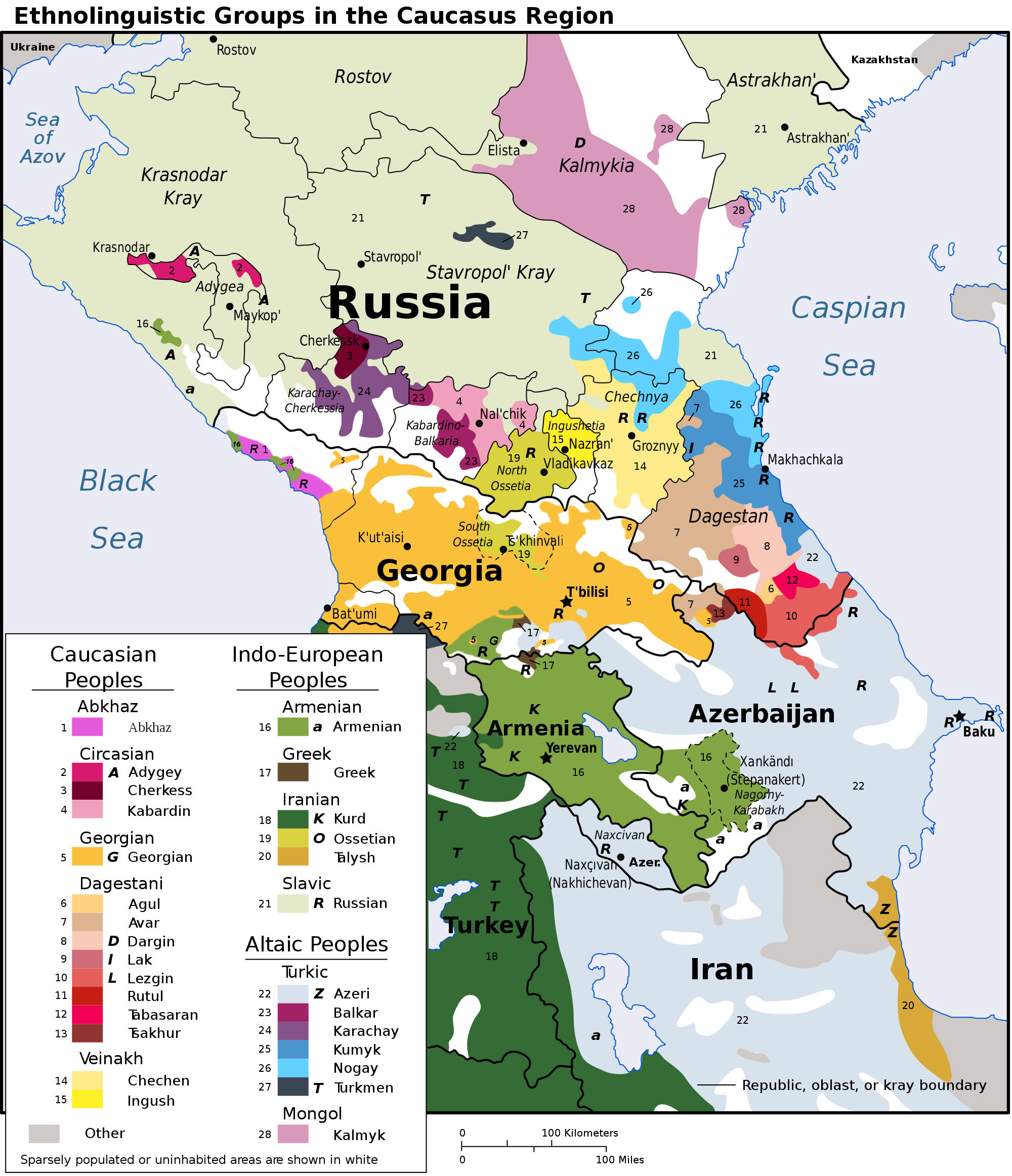
The Caucasus
Caucasia is an ancient region with a jagged landscape. With Turkey to the west, Iran to the south, and Russia to the north, the Caucasus is an isthmus between the Black Sea and the Caspian Sea, and includes the Caucasus Mountains, the highest mountain range in Europe. The history of the Caucasus is war-torn; Alexander the Great, Genghis Khan, Tamerlane, Peter the Great, Hitler, and Stalin all claimed to have conquered the region. A borderland between Christian and Muslim worlds, the Caucasus is the front line of a sometimes problematic clash of cultures. The peoples of the Caucasus vary more so than any other close-knit region in the world.
There are two distinct regions that make up the Caucasus: the Northern Caucasus, currently part of the Russian Federation, and the independent Transcaucasian Republics of Armenia, Azerbaijan, and Georgia. This section focuses on the area of Transcaucasia, particularly using case studies from Armenia and Georgia, which are both historically Christian cultures. The written languages of Armenia and Georgia were codified after Christianity was adopted in the fourth century as their state religions. Differences persist between the two forms of Christianity. The Georgians accept the Council of Chalcedon, which in 451 stated that Jesus was both divine and human in nature, while the Armenians do not. The Armenians believe that Jesus' nature was purely divine, or what is sometimes called monophysitism.
When the Czarist Empire fell to the Bolsheviks in 1917, the Transcaucasian Commissariat formed, followed by the establishment of the Democratic Federative Republic of Transcaucasia a year later. After a brief period, the federation split into the three independent republics of Armenia, Azerbaijan, and Georgia until the Soviet machine usurped them in 1922. After the formation of the new Soviet Socialists Republics of Transcaucasia, each eventually emerged as independent republics of the USSR. The fall of the Soviet Union led to the establishment of three independent republics in 1991.





Kyrgyz kuus were passed along orally, but composers (as far back as the 19th century) are known by name.






